
Excel How to Sum If Cells Contain Text Statology
To test for cells that contain specific text, you can use a formula based on the IF function combined with the SEARCH and ISNUMBER functions. In the example shown, the formula in C5 is: = IF ( ISNUMBER ( SEARCH ("abc",B5)),B5,"") To test for "if cell equals" you can use a simpler formula. Generic formula = IF ( ISNUMBER ( SEARCH ("abc",A1)),"x","")

How to Sum Values If a Cell Contains a Specific Text
Formula to Sum IF Cell Contains a Specific Text First, in cell C1, enter "=SUMIF (". After that, refer to the range from which we need to check the criteria. Now, in the criteria, enter an asterisk-criteria-asterisk ("*"&"Mobile"&"*"). Next, in the sum_range argument, refer to the quantity column. In the end, hit enter to get the result.

How to Sum If Cell Contains Text in Another Cell in Excel
To sum numbers if cells contain text in another cell, you can use the SUMIFS function or the SUMIF function with a wildcard. In the example shown the formula in cell F5 is: = SUMIFS ( data [ Amount], data [ Location],"*, " & E5 & " *") Where data is an Excel Table in the range B5:C16.
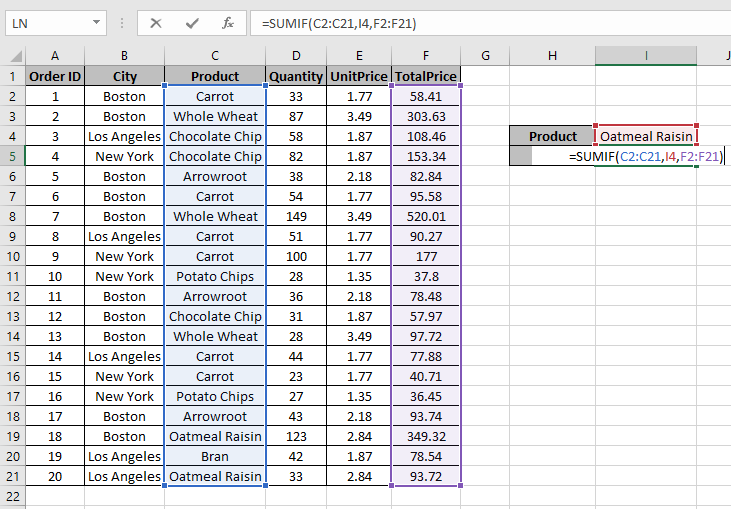
Cómo sumar si la celda contiene texto en otra celda en Excel officeskill
In Excel, we often need to sum cells if they contain specific text. In order to achieve this, we will use the SUMIF function which enables us to sum values from one column, while looking up for the specific text in another column. This step by step tutorial will assist all levels of Excel users in summing cells that meet a specific criteria through the use of SUMIF and Wildcards
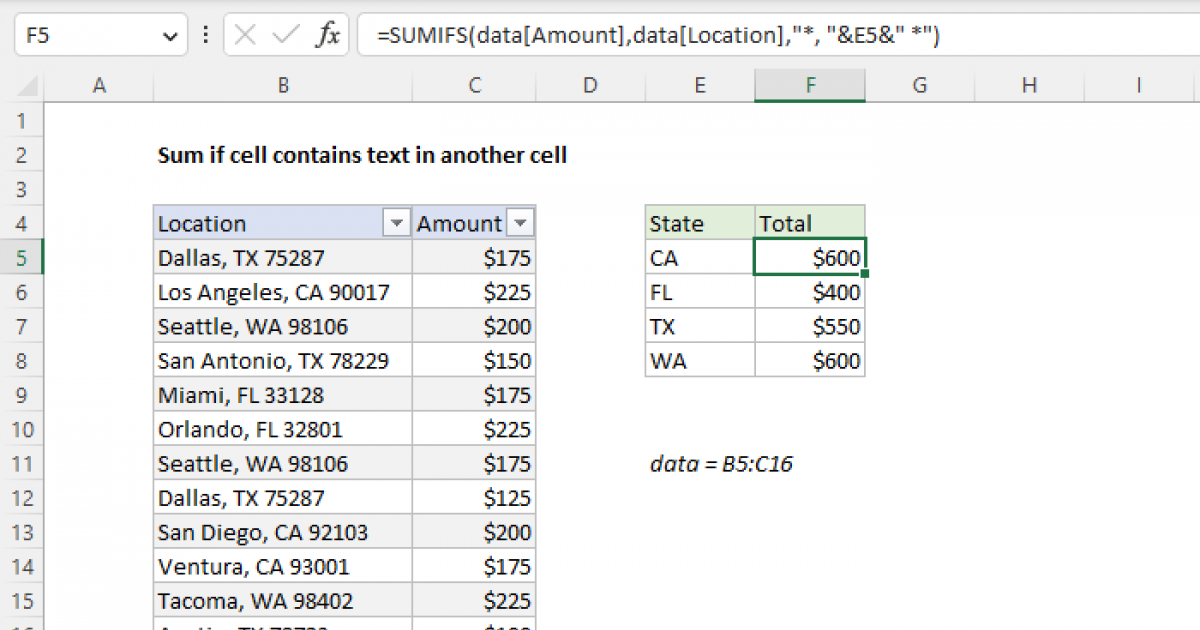
Sum if cell contains text in another cell Excel formula Exceljet
Excel's SUMIF function can be used to sum if a cell contains the text. To do so, use an Asterisk Symbol (*) as the condition in a SUMIF function, as seen in the formula below: =SUMIF (D5:D11,"*",F5:F11) We have got the total amount is 1720. Which only has text values in the adjacent cells in the Customer Address column.
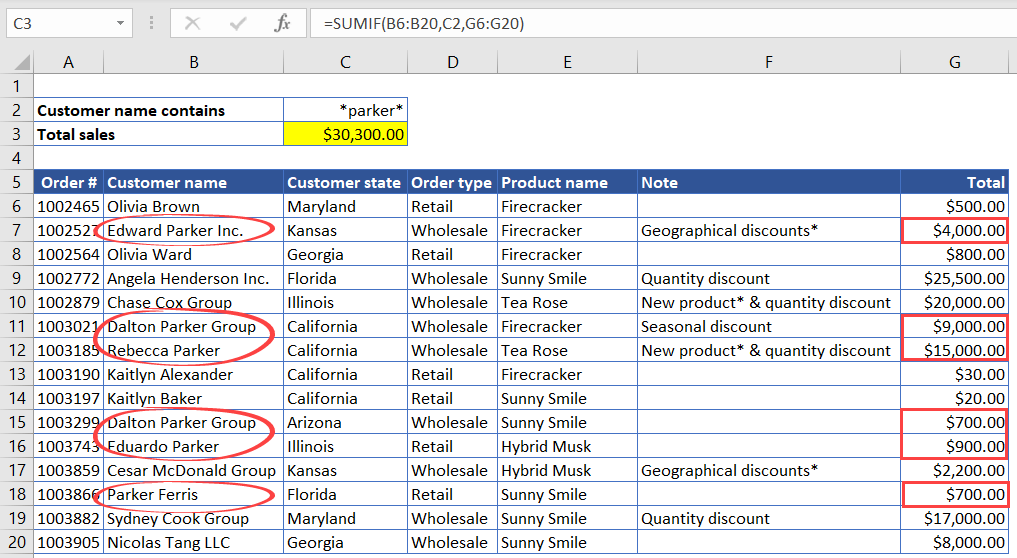
Excel SUMIF Text Formula Examples Coupler.io Blog
The Excel SUMIF () function is used to add values based on specific criteria, such as cells containing text. Let's take a look at the Excel SUMIF () function and its arguments to better understand how to use it: =SUMIF (range, criteria, [sum_range]) As you can see from the code block above, the function takes three arguments.

How to Sum If a Cell Contains Criteria (5 Suitable Examples)
To search for whether the cells contain the text held in cell E3, we can use the SUMIFS Function with a cell reference and * wildcards: =SUMIFS(C3:C9,B3:B9,"*"&E3&"*") Note that the text "Dakota" has been replaced by the cell reference &E3& and the * characters have been put into quotes (" "). Multiple cell references and wildcard.

How to Sum If Cell Contains Text in Another Cell in Excel
Step 2 - Implement the formula. - Now that we have created our desired formula, we will press enter and the formula will be implemented in the suitable cell as shown above. In today's tutorial we'll learn how to calculate the sum of cells based on a text criterion in Excel. Let's take a look at the following sales dataset.
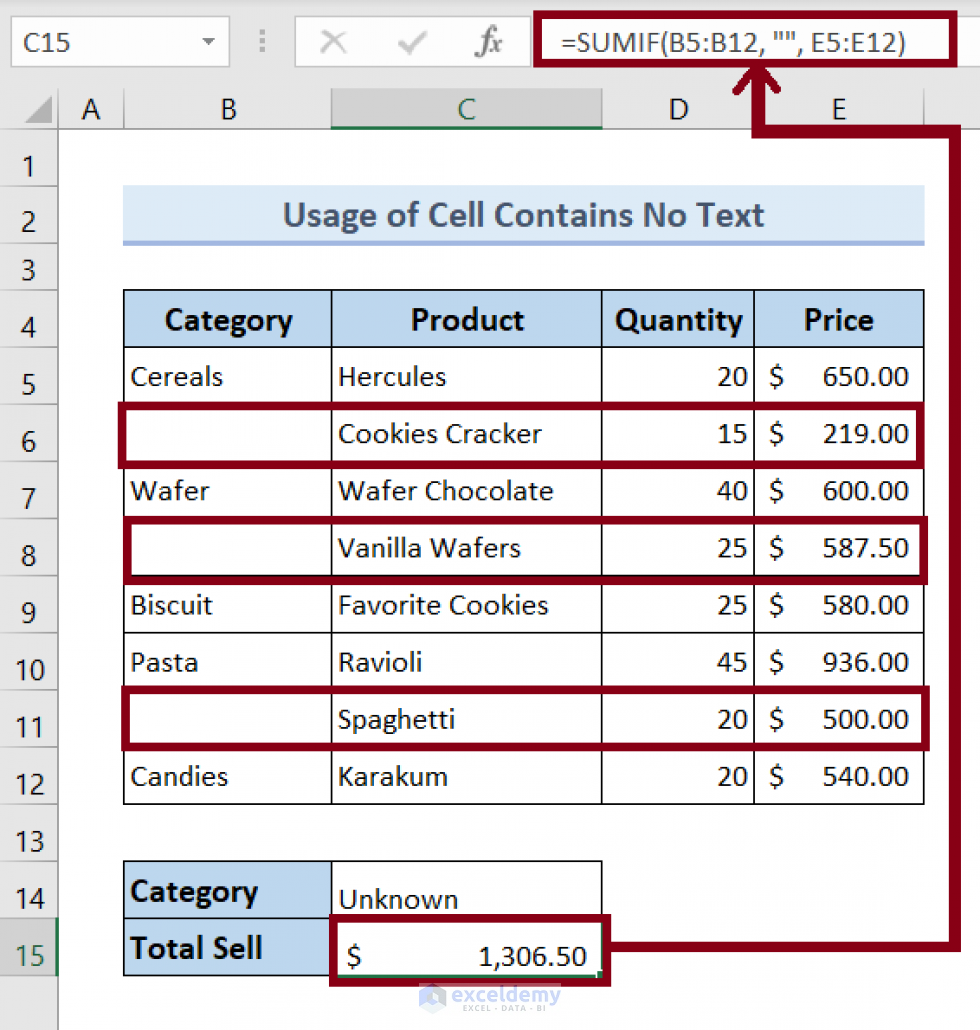
How to Sum If Cell Contains a Text in Excel (6 Suitable Examples)
Count if cell contains any text In situations when you want to count cells containing any text, use the asterisk wildcard character as the criteria in your COUNTIF formula: COUNTIF ( range ,"*") Or, use the SUMPRODUCT function in combination with ISTEXT: SUMPRODUCT (-- (ISTEX ( range )))

Excel formula Sum if cell contains text in another cell Sum with Partial Text YouTube
Method 1: Sum Cells that Contain One Specific Text =SUMIF (A2:A11, "*avs*", B2:B11) This formula will sum the cells in the range B2:B11 where the corresponding cells in A2:A11 contain "avs" in the cell. Method 2: Sum Cells that Contain One of Several Text =SUMIF (A2:A11, "*avs*", B2:B11)+SUMIF (A2:A11, "*eat*", B2:B11)
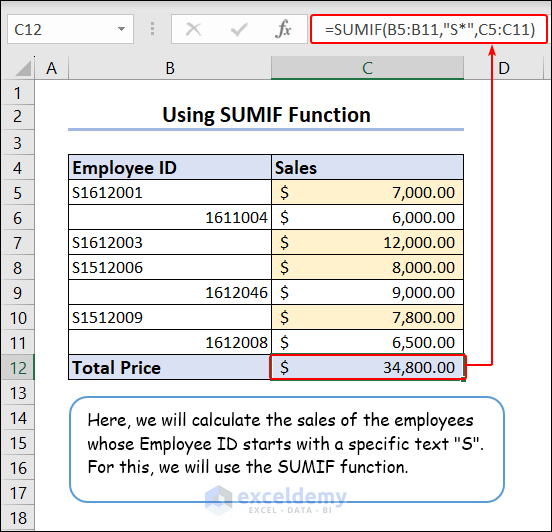
How to Sum If Cell Contains Number in Excel (6 Examples)
Using SUMIF if cells contain specific text Figure 1. Example 1 Formula for specific text: =SUMIF (range,"criterianame",sum_range) This is a grocery list with a range that contains specific repeated text. In order to add the sum range based on a specific text criteria, we need to:
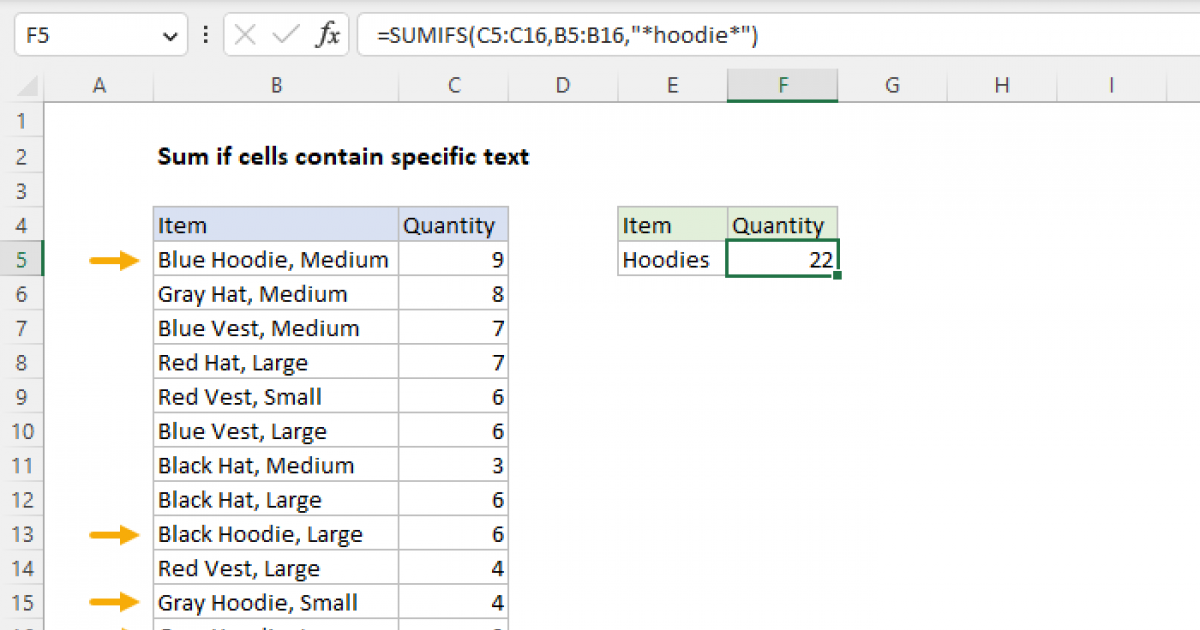
Sum if cells contain specific text Excel formula Exceljet
Syntax SUMIF (range, criteria, [sum_range]) The SUMIF function syntax has the following arguments: range Required. The range of cells that you want evaluated by criteria. Cells in each range must be numbers or names, arrays, or references that contain numbers. Blank and text values are ignored.
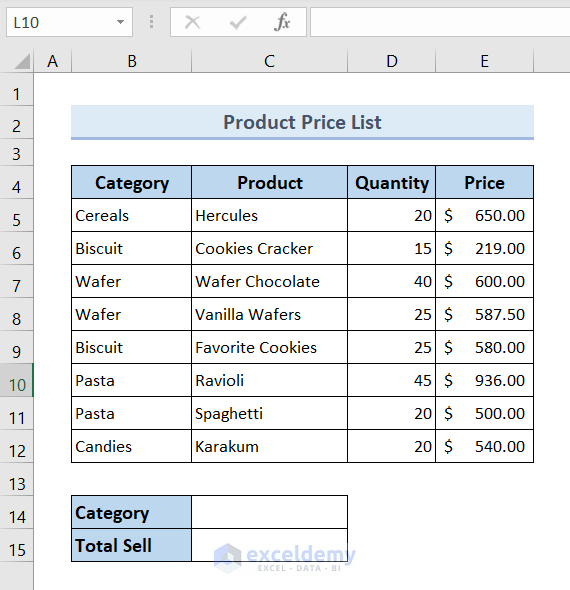
How to Sum If Cell Contains a Text in Excel (6 Suitable Examples)
Provide step-by-step instructions. Step 1: Open your Excel spreadsheet and select the cell where you want the result to appear. Step 2: Enter the formula =SUMIF (range, criteria, sum_range) into the selected cell. Step 3: Replace range with the range of cells that you want to evaluate, criteria with the condition that the cells must meet, and.
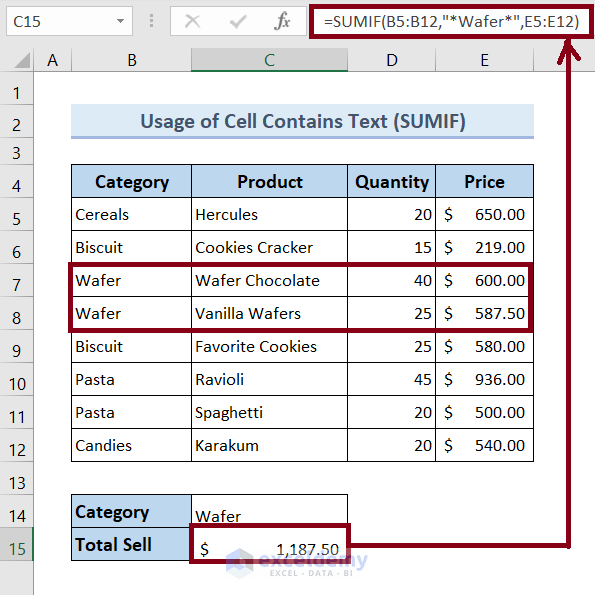
How to Sum If Cell Contains a Text in Excel (6 Suitable Examples)
Sum if cell contains text in another cell When we want to add data based on a given criteria in Excel, it is best to use SUMIF or SUMIFS. This article will explain how to sum cells while looking up specific text in another cell. Figure 1. Final result: Sum if cell contains text in another cell
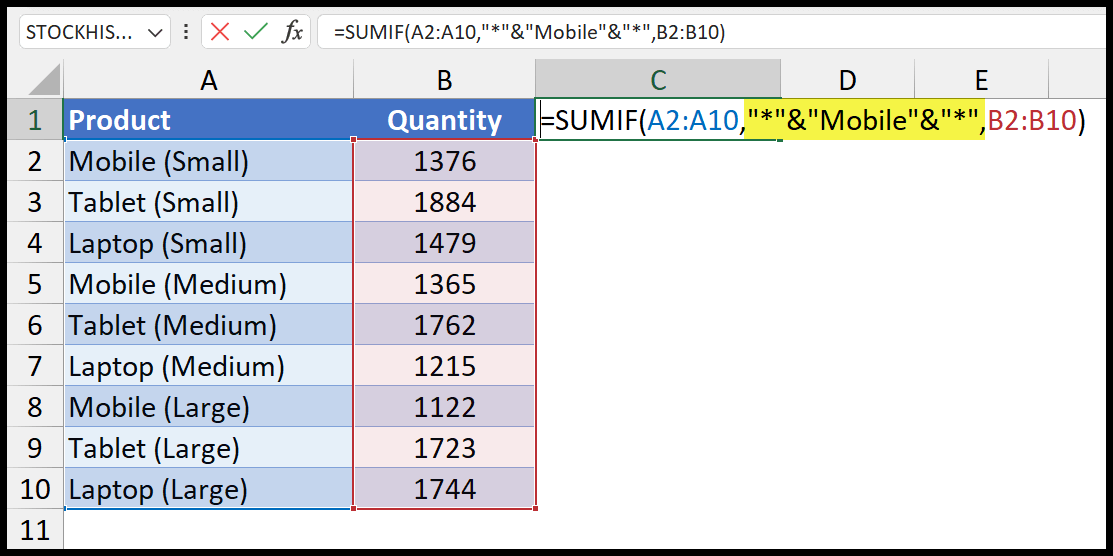
Sum IF Cell Contains a Specific Text (SUMIF Partial Text)
SUMIFS is an Excel function that adds cells that satisfy multiple criteria. Here, we will use the SUMIFS function to get the Total Sales of Dark Chocolate. Let's see the steps below. Steps: In the beginning, click on cell C12. Secondly, type the formula below in the cell ( C12 ): =SUMIFS (E5:E9,C5:C9,"*"&C11&"*")

How to Sum Values If a Cell Contains a Specific Text SKYXCEL YouTube
Now, let's see some examples below for using SUMIF with wildcards. Excel SUMIF: If cell contains specific text in any position. Suppose we want to calculate the total sales generated by customers with a name containing "Parker", and then put the result in C2, as the following screenshot shows: